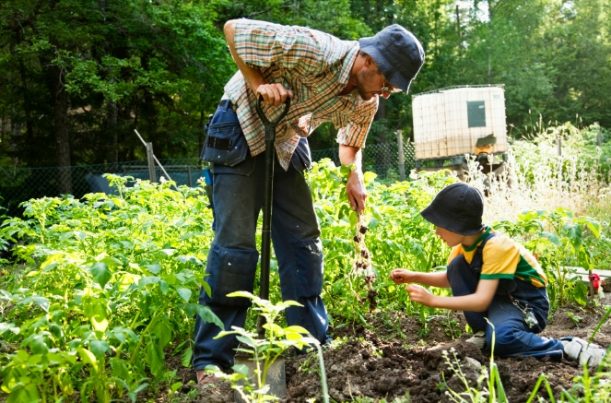
15 Secrets homesteading beginners need to know
Thursday, December 03, 2020 by Zoey Sky
http://www.naturalnewstips.com/2020-12-03-15-secrets-homesteading-beginners-need-to-know.html

Choosing to become a homesteader isn’t a decision that’s made lightly. But as all homesteaders know, this lifestyle requires a lot of hard work and sacrifice for a worthwhile result: A homestead that will provide most of what you need when SHTF. (h/t to NewLifeOnAHomestead.com)
If you’re interested in becoming a homesteader, detailed below are 15 tips that will help you on your journey to self-sufficiency.
You’ll learn from experience
Even the most experienced homesteader started with nothing. You may have a daunting list of tasks ahead of you, but starting is the first step to any great undertaking.
There’s no right or wrong way to homestead. If you live in the city, you can still start a small garden in your backyard or apartment.
It’s okay to make mistakes
You won’t always have a great harvest, or your animals may get sick. This is normal, and you should learn from your mistake so you can improve your homesteading skills.
You need to be organized
Homesteading shouldn’t be done haphazardly. Before you start any task, make a list of things you need to do and items you’ll need for a certain project so you don’t forget anything.
Your gear and supplies will also need to be stored in an organized manner so you can find what you need when you need it.
Maximize your space
Whether you have a spacious farm or a cramped apartment, you need to learn how to maximize your space.
If you live in the city, you can start a mini herb garden in your kitchen. If you have several acres of land in the countryside, you need to design a garden that can accommodate all the plants that you want to grow.
Use vertical storage solutions so you can stock up on supplies without taking up too much space.
Budget your money
While you’re starting, you will need to spend a bit of money. This doesn’t mean you should splurge on items and supplies.
Choose one project to invest in and follow a budget. After all, while you’re working on your homestead you will still have bills to pay and groceries to buy.
Consider the garden costs, a barn, animals and other supplies that you may need. You’ll also need a savings account for emergency repairs in your homestead.
Be prepared to work hard
A homestead requires a lot of hard work. Once you’ve decided to start a homestead, you may need to wake up early and sleep late to finish all your tasks.
You’ll also have less free time, but a homestead is a worthy investment that will benefit you and your whole family.
You may be tempted to quit
Things will be hard, especially in the first couple of months or years, but don’t give up. With hard work, you will eventually have a bountiful garden and healthy animals that will provide you with fresh food.
You need to stay committed
The work doesn’t end once your homestead is set up. You’ll have various chores that need to be done regularly, so getting your family to help will make things easier on yourself.
Build a strong fence
A strong fence is a must for any homestead.
Invest in sturdy materials so your fence can keep your animals and pets inside your property. At the same time, the fence will help you define specific areas of your homestead and keep out trespassers.
Gardening has a steep learning curve
A picture-perfect garden will require a lot of trial-and-error and lots of back-breaking work.
You also need to learn about the plants that will grow well in your area. Start by growing a couple of plants, and as you get used to planting and caring for your crops, add more until you have a thriving vegetable garden. (Related: Home gardening tips: How to start seeds indoors.)
Learn how to upcycle
A homestead is an ideal lifestyle for people who want to be more eco-friendly.
By upcycling, you can give old items a new life. At the same time, you save money because you can make things instead of buying new items.
Keep an eye out for sturdy discarded pallets in stores and learn how to use them for the following homesteading projects:
- Coffee table
- Deck chairs
- DIY sofa
- Pallet bedside lamp
- Planting box
- Storage chest
- Tables and chairs
- TV stand
- Vertical pallet garden
Plant fruit trees
Most fruit trees can take three to five years to produce. If you want a garden full of healthy fruit trees, start planting now so you can harvest later.
Raise chickens
Chickens are one of the easiest farm animals to raise. They forage for food, as long as you give them some feed and chicken scratch.
Chickens lay eggs, and once they’re done laying you can butcher chickens for meat. Chickens only need a safe coop. Alternatively, you can raise free-range chickens.
Homesteading is therapeutic
The homesteading lifestyle is tiring but therapeutic. While you’re gardening or feeding your animals, you have a chance to exercise while also being exposed to nature and fresh air.
Homesteading will teach you how to be self-sufficient
Like any other skill, self-sufficiency requires time and practice. Don’t be discouraged if you make mistakes, and keep going even on days when you’re tired to the bone.
Keep these tips in mind and work with your whole family so you can help each other build a successful homestead.
Sources include:
Tagged Under: Tags: disaster, food independence, green living, home gardening, homesteading, homesteading tips, off grid, preparedness, prepping, self sufficiency, self-reliance, self-sustainability, SHTF, survival, sustainable living, tips
RECENT ARTICLES


Foraging 101: 10 Wild nuts to forage every Fall
By Zoey Sky

Are you eating GMO foods without knowing it?
By Olivia Cook

How to prepare for an EMP strike
By Zoey Sky

Prepping101: How to use basic survival tools effectively after SHTF
By Zoey Sky
COPYRIGHT © 2017 NATURAL NEWS TIPS


